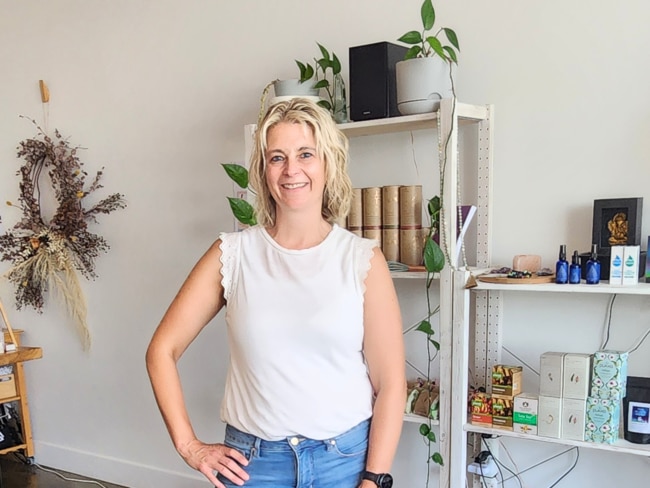‘Mass exodus’: Wild reason Aussie left $140k job as six-figure trend takes over the nation
A shocking trend is sweeping across the country, with more and more Aussies turning their backs on high-paying roles.
Careers
Don't miss out on the headlines from Careers. Followed categories will be added to My News.
Ever dreamt of swapping spreadsheets for surfboards, or trading the boardroom for baking bliss? You’re not alone.
Most of us have, at some point, indulged in the fantasy of a complete career overhaul, of leaving behind the familiar 9-to-5 monotony for something completely different – a passion project, a creative pursuit, a long-held dream — but how many of us actually take the leap? Turns out, more than you might think.
According to the latest Australian Bureau of Statistics data, we are witnessing a surge in career changes, with nearly one in 10 Aussies switching jobs in the past year alone.
In fact, we are changing jobs at the highest rate in a decade.
MORE: Everything you need to know about calling it quits
“The days of a job for life are long gone,” said Ant Cohen, founder and CEO of Project Placed — a registered charity that offers career counselling and mental wellbeing services across Australia.
“Rapidly changing market conditions means that companies continue to restructure and at more frequent intervals than in the past.
“We do see that Millennials are changing their careers more than anyone in response to this, but we also see that across the board, people from all generations are looking for roles which are more aligned with their values and that also offer them the flexibility they desire.”

MORE: Should you stay in your job when your colleagues are quitting?
Aussie’s wild $80,000 pay cut
While necessity due to industry changes may be responsible for some career pivots, the driving force for many who have taken the leap goes way beyond a pay cheque.
“We see more people that don’t simply want to be a ‘cog’ in someone else’s machine,” Mr Cohen said.
“They want to make a difference and use the skills that they have to do something that makes them really want to get out of bed in the morning.”
Melbourne-based Estelle Coombe-Heath is just one of the many Australians who realised that they were no longer satisfied with their career trajectory.
“The long workdays and high-stress project environments took a toll on my health,” she said of her job as a business analyst within the financial world.
“In 2015, I was diagnosed with a blood clot in my brain, and that became my wake-up call. I realised I was pushing myself too hard and that my health needed to come first. I turned to yoga and meditation, which helped me manage stress and build resilience.”
Ms Coombe-Heath spent two years studying to become a yoga teacher, as well as a health and life coach, before finally quitting her stable corporate career to start her own business at the age of 38.

“Leaving behind what I knew so well came with mixed emotions,” recalled the now 42-year-old.
“I was excited to help my clients and yoga students, but stepping into the unknown was daunting. While I had plenty of experience in data analysis and software implementation, running a business was a completely different challenge. I had to learn marketing, sales and bookkeeping.”
Another sacrifice in embarking on a new profession was her salary, which dramatically dropped from $110,000 to just $30,000 in her first year of business.
“Instead of focusing on what I had lost financially, I focused on what I had gained – freedom and purpose,” she said.
“Things shifted for me when I realised that every path in life carries risks — employment may offer a steady salary but jobs come and go just like opportunities do. The real security came from believing in myself and my ability to adapt, learn, and grow.”
Two years ago, the entrepreneur took another gamble and purchased her own yoga studio, Kindred Warrior, in Lilydale. Since then, she has also introduced yoga teacher training programs and retreats.
Aussie ditches $140k job
Dissatisfaction and the need for a new challenge were also motivators for Brisbane-based Emily La Rosa’s midlife career change.
“For nearly two decades I climbed the corporate ladder as a marketing manager earning $140,000,” she said.
“But, despite the financial security, by age 35 I felt unfulfilled. I craved a fresh challenge – something that would allow me to balance my professional ambitions with managing a household and raising two young children.”
At 38, the busy mum took a bold leap and left behind her well-established career to complete a Master of Teaching and become a primary school teacher — taking a pay cut of $60,000 to do so.
However, while teaching brought purpose after five years, she was still dissatisfied.
“The creative fulfilment I had hoped for remained elusive,” she said.
“After four years in the classroom, I found myself once again longing for something more – something that allowed me to build, innovate, and leave a lasting impact.”

This turned out to be, to her surprise, in the funeral industry, with Ms La Rosa ultimately launching her business Yurn, which provides meaningful memorials that seamlessly blend into modern homes.
“The idea of moving into something completely different felt exhilarating,” explained the 43-year-old.
“I was eager to immerse myself in all aspects. I only had fleeting moments of doubt, usually on days when I was juggling motherhood, studying late at night, or feeling particularly fatigued.
“I’ve pivoted careers twice now — each time moving further from ‘traditional success’ and closer to work that genuinely fulfils me. Reinventing yourself midlife isn’t easy, but it’s possible – and it can lead to a life richer than any salary ever could.”
‘Rethink’ revolution
So, what’s driving this mass exodus from the traditional career path?
The answer, it seems, is a potent cocktail of factors.
Certainly the Covid-19 pandemic forced many to re-evaluate their priorities, prompting a “great rethink” about work-life balance and personal fulfilment.
“It’s a combination of factors,” said Mr Cohen.
“First and foremost it’s about security and in the face of ever-changing headcount pressures in large corporates, especially, people are looking for roles that offer that job security.
“Mid-career or older professionals are taking what they have learned and applying it to different industries where they can add value. Covid, too, might have been the great work from home experiment borne of necessity, but it has awakened a deep-seated need for work/life balance that transcends generational boundaries.”

Add to that the rising cost of living, the increasing accessibility of online learning and the rise of AI, and you have a recipe for a workforce that’s ready for change.
“We live in an era of accelerating change,” says founder of the The Evolved Project, Alex Knight — a creative producer who coaches people in building careers in which they can thrive.
“Traditional career paths don’t guarantee stability as they once did. People can no longer assume a single identity will carry them securely for decades. Although this can feel overwhelming, it also highlights fresh opportunities to find work that aligns with individual strengths and values.”
Fear and uncertainty
Of course, reinventing yourself isn’t a walk in the park. Whatever career path you want to take requires courage, planning and a willingness to step outside your comfort zone.
But where to begin?
“It’s important to do your research and have a solid plan in place,” Mr Cohen said.
“A good career coach is invaluable. Speak to people already in your target industry — understand the skills, qualifications, certifications and even insurance you may need — and be clear on the financial and time investment required, and where possible, test the waters with part-time, freelance, or volunteer work before fully committing. Most importantly, communicate openly with those who will be impacted by your decision, seek their feedback and get their buy-in for a smoother transition.
“Switching careers without a solid plan is like setting sail without a map. A clear strategy helps you identify transferable skills, fill any gaps and position yourself competitively in the job market. The right preparation ensures your transition is not just successful, but sustainable.”
Another reality is knowing that there will be fear and uncertainty but, by shifting your mindset, this can be overcome, Mr Knight said.

“Instead of viewing uncertainty as a threat, leverage it to uncover unexpected opportunities. This can mean pivoting to new markets, reframing your skill sets or identifying under-served niches where you offer unique value. The key is focusing on personal growth and ensuring any risks you take have a thoughtful safety net to prevent catastrophic downsides,” he said.
The new normal
Looking to the future, it’s clear — especially in the current climate — that changing careers will become our new normal.
“The modern world is moving at hyper-speed and people need to stay aligned, motivated and relevant,” Mr Knight cautioned.
“As industries and technologies evolve, people will be pushed to reinvent themselves more often, and this won’t just be reserved for the young.”
While scary and precarious, the rewards for those who do take the leap can be immense, from increased job satisfaction and a better work-life balance to a renewed sense of purpose.
“Starting a business is daunting and doubt creeps in at times but I have no regrets,” said Ms La Rosa.

“At my university graduation, a speaker reminded us that today’s professionals are likely to change careers five or more times. That resonated deeply. It reaffirmed my belief that adaptability and the willingness to pivot are key to long-term fulfilment.”
Similarly, Ms Coombe-Heath has never looked back after up-ending her career in finance for her own yoga business.
“Changing careers can be terrifying but life is too short to stay uninspired or unhappy,” she said.
“It’s better to face your fears for a moment than to spend the rest of your working years wondering what if?
“Obstacles are inevitable, but every challenge you overcome will teach you something invaluable about yourself. If you have a calling, trust it. The fear of change is temporary, but the regret of not trying can last a lifetime.”
Paul Ewart is a freelance writer
Originally published as ‘Mass exodus’: Wild reason Aussie left $140k job as six-figure trend takes over the nation




